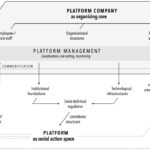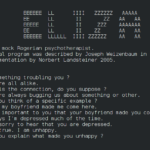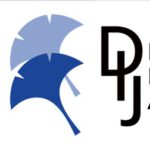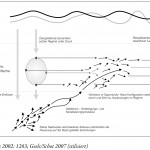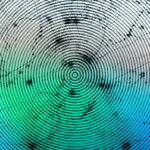24. Juli 2016
In der Debatte (Heft 15, S. 22–25, hg. durch die Brandenburgische Akademie der Wissenschaften) ist ein kurzer Aufsatz von Renate Mayntz (*1929) erschienen, der sich mit der Ambivalenz des ›Neuen‹ in der Wissenschaft auseinandersetzt:
»[…] In der Technikentwicklung – und damit in den Technikwissenschaften – ist Können die Frucht von Innovation – ›neu‹ heißt ›besser‹, besser heißt schneller, leichter, billiger – ob es um Licht, Verkehr oder Kommunikation geht. Das Risiko ist hier, dass das Neue nicht funktioniert. Im Unterschied zu den Wirtschaftswissenschaften ist das Janusgesicht des Neuen sowohl in den Technikwissenschaften wie in den angewandten Naturwissenschaften präsent. Bei fast allen naturwissenschaftlich basierten technischen Neuerungen wurde und wird die Möglichkeit negativer Folgen gesehen.
[…] Die Frucht des Neuen in nicht unmittelbar praxisbezogenen Disziplinen ist kein Können, sondern ein Wissen. […] Neues Wissen über die Beschaffenheit der Welt zu gewinnen setzt nicht nur die Bereitschaft voraus, bislang für wahr Gehaltenes anzuzweifeln, sondern auch die Fähigkeit zu erkennen, dass etwas gar nicht Gesuchtes […] der Wirklichkeit näher kommt als das bisher Geglaubte.
Weiterlesen »
15. Juni 2016
Der Reuters Institute Digital News Report ist in diesen Tagen erschienen und bietet wie in den Jahren zuvor einen kompakten Überblick zur weltweiten Rezeption von Nachrichtenangeboten und die Nutzung der unterschiedlichen Medienkanäle in der individuellen Versorgung mit tagesaktuellen Informationen.
Die Erhebungsresultate für Deutschland lassen sich als Arbeitspapier des Hans-Bredow-Instituts (Hamburg) in ausführlicher Form abrufen. Einige Kernergebnisse:
Weiterlesen »
9. Juni 2016
Ende Mai ist der Sammelband »The Decentralized and Networked Future of Value Creation« erschienen, in dem sich auch der Artikel »Materializing Digital Futures« findet, den ich zusammen mit Sascha Dickel verfasst habe:
Based on two paradigmatic case studies—Web 2.0 and 3D printing—this chapter explores the semantic patterns of popular media utopias and unfolds the thesis that their continuing success is based on their multireferencial compatibility to a broad variety of sociocultural and socioeconomical discurses. Further, we discuss the ambivalences and social functions of utopian concepts in the digital realm.

Weiterlesen »
12. April 2016
Inzwischen ist der Studienbrief »Kommunikation und Partizipation im Social Web. Eine Übersicht«, den ich im Jahr 2014 für die Fernuniversität in Hagen verfasst habe, als Autorenversion auch als kostenloser Download verfügbar:

»Das Internet hat als erstes ›Universalmedium der Menschheitsgeschichte‹ (Holland 1997) bereits in den 1990er Jahren eine breite sozialwissenschaftliche Debatte zu seinen soziokulturellen wie -ökonomischen Rückwirkungen angestoßen und das sogenannte ›Web 2.0‹ hat entsprechende Diskussionen ab 2005 weiter befördert.
Mit Blick auf die damit verbundenen, teilweise sehr weitreichenden Zukunftsvorstellungen die Übersicht zu behalten sowie zwischen tatsächlich gegebenen Trends und hochfliegenden Prophetien zu unterscheiden, erscheint allerdings nicht immer einfach […].
Eine kleine Navigationshilfe zur weiteren Beschäftigung mit dem gesellschaftlichen Wandel, der durch die Onlinetechnologien angestoßen worden ist, bietet dieser Studienbrief, der seinen Schwerpunkt auf die langfristigen Transformationsdynamiken legt, die aus den neuen Kommunikationsweisen im Netz resultieren. Der Band will einen kontextorientierten Überblick zum Social Web als soziotechnisches Phänomen vermitteln, das durch das Ineinanderwirken vielfältiger gesellschaftlicher sowie technologischer Einflussfaktoren geprägt ist, und führt Schritt für Schritt in die damit verbundenen Diskurszusammenhänge ein. […]«
12. März 2016
Dem derzeitigen ›4.0‹-Trend folgend hat Dirk Baecker unlängst in seinem lesens- wie diskussionswerten Essay »Oszillation 4.0« (auf dem jungen sozialwissenschaftlichen Nachrichtenportal Soziopolis) die Mediengeschichte neu aufgerollt und – wie der Titel schon sagt – entlang des Begriffs der ›Oszillation‹ in 4 Phasen gegliedert:
 Weiterlesen »
Weiterlesen »
24. Januar 2016
Steve Ballmer, 2000 bis 2014 CEO des Unternehmens Microsoft (das gemessen am Jahresumsatz mit Software nach wie vor führend auf seinem Feld ist – vgl. SOI DP 2015/2: 22), gab im April 2007 in einem Interview mit der USA Today zu Protokoll:
»Q: People get passionate when Apple comes out with something new — the iPhone; of course, the iPod. Is that something that you’d want them to feel about Microsoft?
Ballmer: It’s sort of a funny question. Would I trade 96% of the market for 4% of the market? (Laughter.) I want to have products that appeal to everybody. Now we’ll get a chance to go through this again in phones and music players. There’s no chance that the iPhone is going to get any significant market share. No chance. It’s a $500 subsidized item. They may make a lot of money. But if you actually take a look at the 1.3 billion phones that get sold, I’d prefer to have our software in 60% or 70% or 80% of them, than I would to have 2% or 3%, which is what Apple might get.
In the case of music, Apple got out early. They were the first to really recognize that you couldn’t just think about the device and all the pieces separately. Bravo. Credit that to Steve (Jobs) and Apple. They did a nice job. But it’s not like we’re at the end of the line of innovation that’s going to come in the way people listen to music, watch videos, etc. I’ll bet our ads will be less edgy. But my 85-year-old uncle probably will never own an iPod, and I hope we’ll get him to own a Zune.«*
* Der Zune war ein MP3-Player von Microsoft, der 2006 auf den US-amerikanischen Markt kam. Seine Entwicklung wurde 2011 eingestellt.
1 Kommentar
7. Januar 2016
Smart Home, Online-Shopping, interaktives Fernsehen, Echtzeit-Navigation, Automatisierung – über diese und andere Verheißungen einer computerisierten Zukunft berichtet (wenn auch zum Teil mit anderen Vokabeln) der Artikel »Living: Pushbutton Power« im TIME Magazine 2/1978 (via Modern Mechanix):
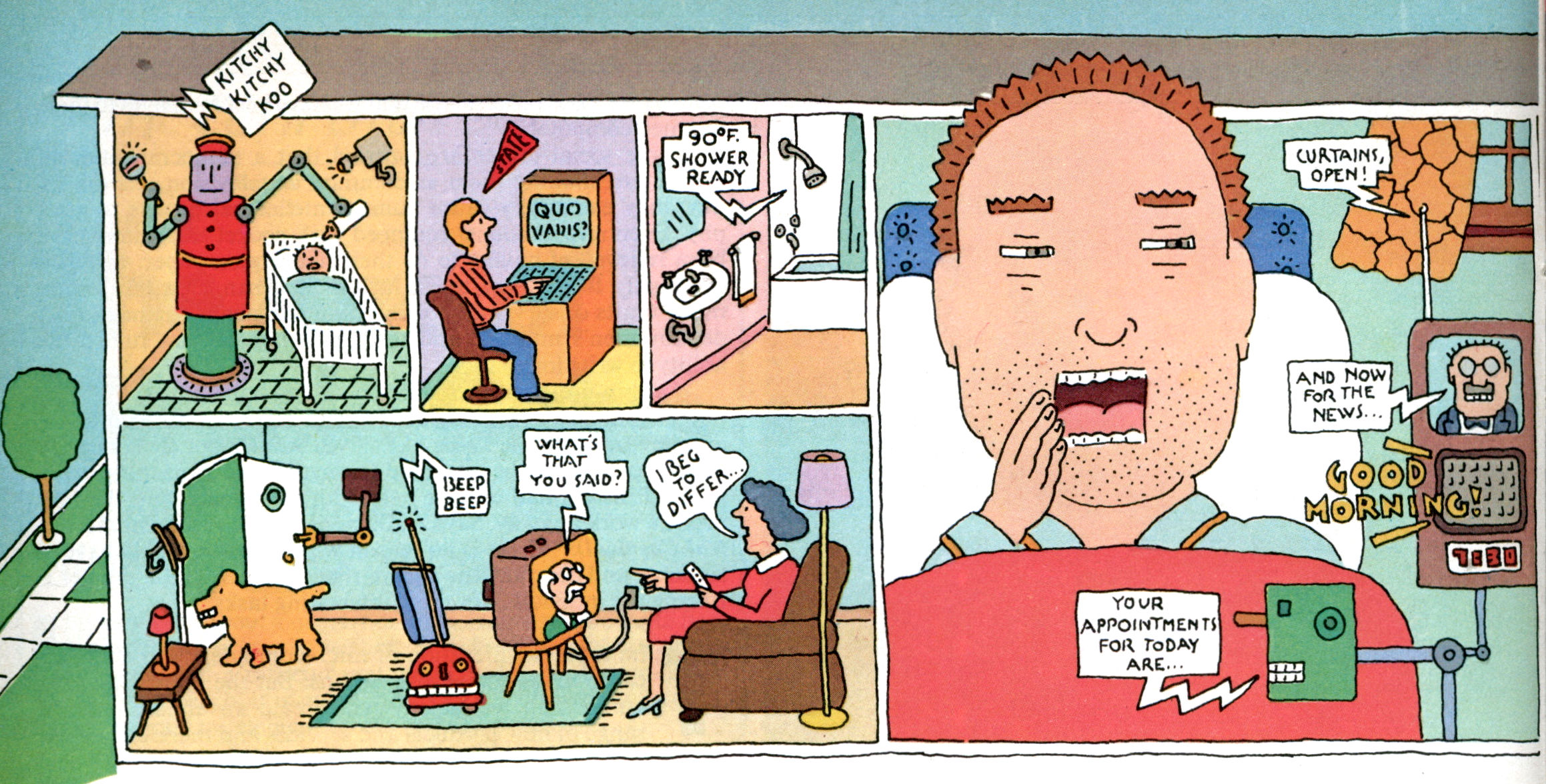 Weiterlesen »
Weiterlesen »









